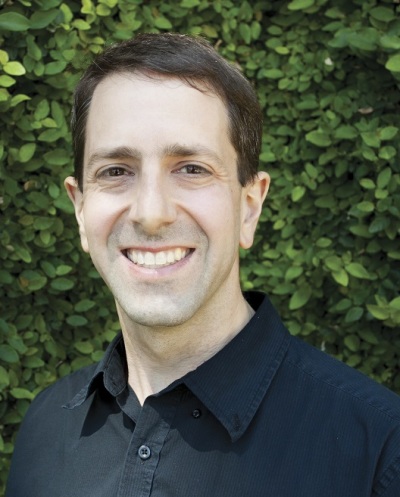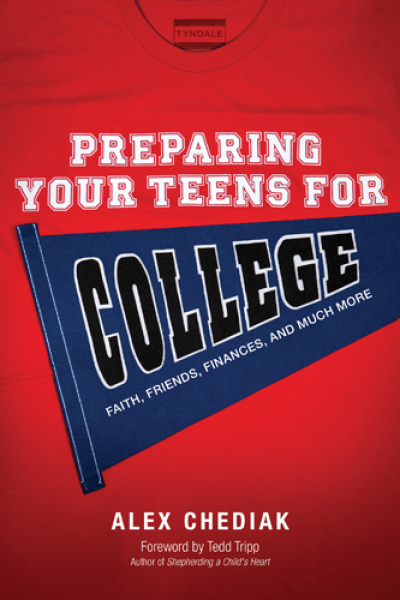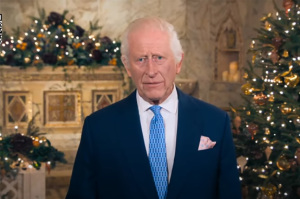Parents Need More Than Apologetics to Raise Godly Teens, Says Author and Professor Alex Chediak

Professor and Christian author Alex Chediak says that in order for parents to raise godly teenagers, they must use more than apologetics resources.
Alex Chediak, who teaches engineering and physics at California Baptist University, wrote about the topic in a book released earlier this year titled, Preparing Your Teens for College: Faith, Friends, Finances, And Much More.
"Information and logical arguments are helpful in making Christianity understandable and credible, and in dismantling false worldviews, but ultimately an act of the will (and the work of God in someone's heart) is involved," wrote Chediak.
In an interview with The Christian Post earlier this week, Chediak reiterated the value of apologetics in helping youth accept the Gospel.
"I think apologetics definitely needs to be a component of a teen's development because they are going to encounter people who don't agree with them and they need to be ready for that," he advised.
"They need to be ready to respond to that, both with conviction and a sense of what we believe as Christians; it's based on reason and it's based on historical events. We don't have a faith that is devoid of reason."
Nonetheless, Chediak also told CP that parental behavior is a stronger influence on the faith development of a child.
"Apologetics is important, but more than that I think teens need to see faith modeled and lived out in front of them so that they see it as a winsome thing. A positive element in someone's life," he asserted.
Chediak noted that college freshmen who "remember that mom and dad lived out an attractive lifestyle because of their faith" will benefit spiritually from their example. Furthermore, parents who welcomed questions about faith, even if they did not have all the answers, were also spiritually beneficial to their child.
"When their atheist professor challenges their faith in biology class, they'll remember: 'Hey, mom and dad were never afraid of questions, I can go to them with these questions,'" Chediak explained.
Preparing teens for life
Released in February by Tyndale House Publishers, Preparing Your Teens for College derived from questions Chediak received regarding an earlier book titled, Thriving at College: Make Great Friends, Keep Your Faith, and Get Ready for the Real World.

"At conferences, at churches, and in everyday conversations, it seems every parent is asking questions," wrote Chediak in Preparing Your Teens for College's Introduction.
"Those questions led to this book — a comprehensive manual for parents, pastors, guidance counselors, or anyone else getting teens ready for college."
Chediak told CP that one question in particular he was getting is: "How do I prepare teens for the challenges of adulthood in the 21st century?"
"Giving them the tools they need and the wherewithal to be successful," said Chediak, who has dubbed his more than 400 page work "a comprehensive manual on getting teens ready to leave the home."
The book is divided up into six parts: character, faith, relationships, finances, academics, and the college decision.
Each part is comprised of conversations on assorted subtopics within the overarching topic, fleshing out the subjects and advice for parents raising teenagers in the United States.
"Character issues are important; faith formation, relationship development, making friends with those who are going to influence them positively," Chediak said.
"Academic preparation, figuring out what you are good at and what you love, and really knowing yourself a little more when you go into college."
Beyond the title
Despite the name of the book, Chediak told CP that he felt Preparing Your Teens for College was about more than just college years.
"One of the unfortunate aspects of the title is that I don't think it quickly captures the full gist, the full scope of the book," he commented.
Chediak also noted that the issues discussed in Preparing Your Teens for College encompassed matters that went beyond academic life.
"This is a book on preparing teens for life, whether or not they go to a four year college in particular," said Chediak, who sees his book as "getting kids ready for the challenges of adulthood."
"I wanted to write a comprehensive book to what does a parent need to start doing, especially when their kids are 12 and 13."





























